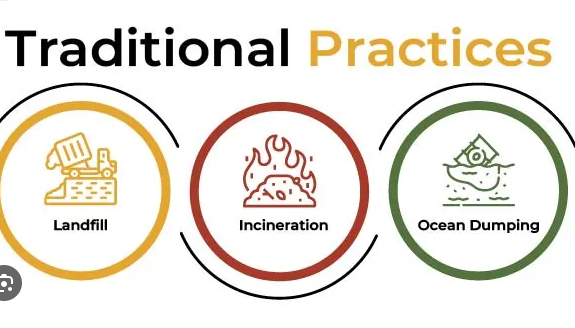In an era where environmental consciousness is more than a trend, it has become a necessity. The transition toward a zero-waste lifestyle is gaining momentum among eco-conscious consumers and sustainable living enthusiasts. This movement is not just about reducing waste; it’s about rethinking our consumption patterns to protect our planet for future generations.
Its Importance in Reducing Environmental Impact
The zero-waste lifestyle is a philosophy that encourages the redesign of resource life cycles so that all products are reused, and no trash is sent to landfills, incinerators, or the ocean. The ultimate goal is to minimize our environmental footprint by living in a way that is sustainable for the earth.
The Problem with Traditional Garbage Disposal Methods
Traditional waste disposal methods, such as landfills and incineration, contribute significantly to pollution, greenhouse gas emissions, and the depletion of natural resources. These practices are not sustainable in the long term, hence the urgent need for alternative approaches.
Tips for Adopting a Zero Waste Lifestyle in Everyday Living
Adopting a zero-waste lifestyle may seem daunting at first, but with small, deliberate steps, it’s entirely achievable. Here are practical strategies to help you get started:
Reduce, Reuse, Recycle: Practical Strategies for Each
- Reduce: Begin by decreasing the amount of waste you produce. This can be as simple as saying no to single-use plastics and opting for products with minimal packaging.
- Reuse: Before throwing anything away, think of ways it can be reused. Old jars can be repurposed for storage, and worn-out clothing can find new life as cleaning rags.
- Recycle: Make recycling a habit by familiarizing yourself with your local recycling guidelines and sorting your waste accordingly.
Composting 101: A Guide to Turning Food Waste into Nutrient-Rich Soil
Composting is a key component of the zero-waste movement. By composting organic waste, you can reduce landfill contributions and create nutrient-rich soil for gardening, completing the natural cycle of growth and decay. Naturally, incorporating a waste compacting service can enhance this process.
Smart Shopping and Packaging Choices: How to Minimize Waste at the Source
Make conscious choices when shopping by selecting products with minimal or recyclable packaging. Bring your reusable bags, containers, and bottles whenever possible to avoid unnecessary packaging.
The Role of Technology and Innovation in Enhancing Zero Waste Practices
Technology plays a crucial role in advancing zero waste goals. From apps that help you locate bulk stores to innovations in compostable materials, technological advancements are making it easier to live sustainably.
Community Engagement and Sharing Economy: Building Support Networks for Sustainability
A strong community can be an invaluable resource on your zero-waste journey. Engaging in local swap meets, joining online forums, and participating in community clean-up activities can provide support and inspiration.
The Future of Zero Waste
The path to zero waste is filled with opportunities to innovate and challenges to overcome. The movement’s future will depend on collective efforts from individuals, businesses, and policymakers to reimagine our approach to consumption and waste management.
Conclusion
The zero-waste lifestyle is a deep commitment to saving the environment, offering a way for people to greatly reduce their impact on the planet. It’s about reducing waste as much as possible to avoid sending anything to landfills. By adopting some strategies from this guide, like cutting down on single-use plastics, composting, and choosing reusable items, you can cut down your environmental footprint significantly.







